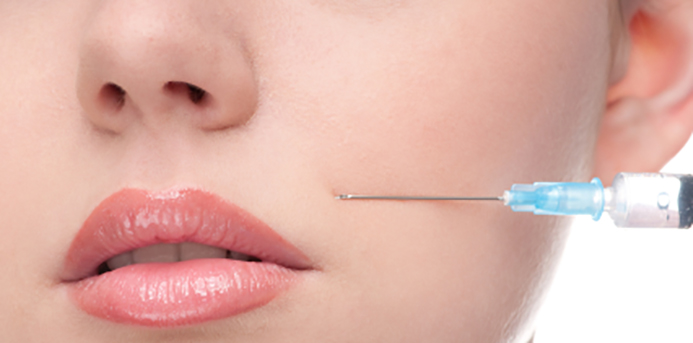I’m pushing 50 and excited about this stage of life, but that doesn’t mean I’m embracing all the physical changes that come my way.
It’s not that I’m afraid to look my age, but a couple of these developments don’t feel like me. In the not too distant past, women had no choice but to accept their changing appearance, but today, methods to treat the signs of aging abound. Is taking advantage of these advances a modern form of good grooming? Or is it insecurity and vanity?
Throughout the last decade, the variety of non-invasive cosmetic treatments to combat the signs of aging has exploded. The FDA approved Botox for cosmetic use ten years ago, and injectable facial fillers like Juvederm and Restylane soon followed. Now dermatologists offer all sorts of treatments for sags and bags and spots and wrinkles including laser treatments, chemical peels, microdermabrasion and Thermage.
These treatments are a growing market, and the reason they’re so popular is that they work, at least for a while. Compared to cosmetic surgery, non-invasive procedures are quick, affordable and involve less pain and recovery time. And you only have to pop in to the medi-spa at the local strip mall to partake. Still, women often don’t admit to having them. They openly color their hair, whiten their teeth or wear contact lenses, but when it comes to Botox or fillers or aggressive peels, women stay mum. And there are plenty of reasons why.
First of all, the procedures aren’t pampering or luxurious, they’re clinical. There are needles, lasers or implements required and perhaps bruising, redness or peeling afterward. Not as much fun to brag about as a hydrating facial. But there’s more to it than that.
There’s a stigma associated with Botox and fillers—that if you’re willing to go through the discomfort and expense, you must feel really insecure about your appearance to begin with. Or, you’re simply shallow and vain. And horrors, if you’re doing something to cover up the signs of aging, you must actually be old! If these negative connotations aren’t shameful enough, using these services is judged by many to be politically incorrect, anti-feminist and elitist.
But perhaps the biggest criticism is that the stuff is artificial and fake and doesn’t allow anyone to age gracefully. And now there’s a growing pressure for women to own up to the work they’ve had done. Women who use these products but deny it are criticized for “cheating” and for promoting an ideal of natural beauty that’s impossible to achieve.
Wow. We are really hard on each other.
Women and men have been using medical procedures to cosmetically improve their appearances for years. Things like braces and veneers, removing unsightly moles, treating spider veins, Lasik eye surgery—they’ve become so mainstream we don’t question them anymore. It’s when it comes to treatments that deal specifically with aging that we seem to get judgmental. Oh, and those related to the gender factor, the leading vaginal tightening clinic in Australia gives statistics on the most popular procedures.
Look, the women I know don’t want to turn back the clock or transform themselves into some frozen-faced vixen. They want to correct a specific issue with their appearance that doesn’t align with the way they feel. They want to smooth out the “elevens” over their forehead that make them appear angry or cranky. They want to fill in hollows or creases that make them look tired or sad. They want to erase years of sun damage. To me, this is no more immoral or shameful than say whitening your teeth.
I think women should have the right to pursue the things that make them feel good about themselves and express who they are, including doing nothing at all.
There’s lots to discuss here, so what do you think? Please post in the comments section below.
Related stories I found interesting:
The Middle Way: Needles and Lasers, O Magazine
Your Secret Beauty Life, Marie Claire
Stigma Attached to Cosmetic Surgery/Botox, UPI.com
Kelly Ripa Raves Botox Lifts Lids, Daily Mail
Popular Plastic Surgeries in America, Huffington Post

